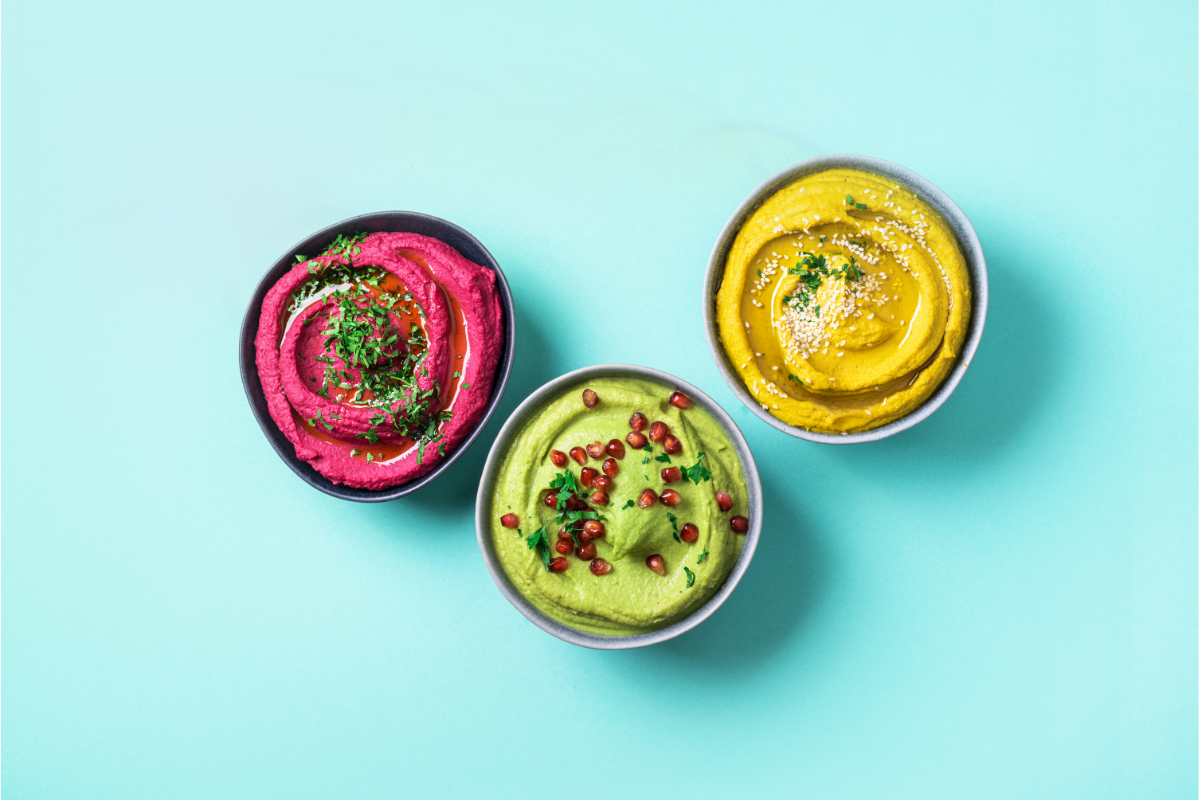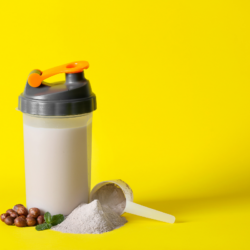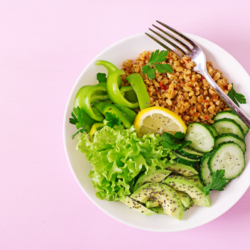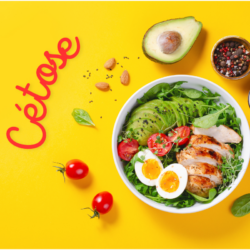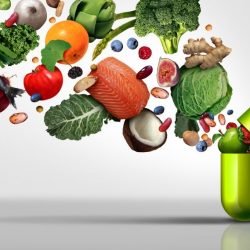The vegan movement has taken the food world by storm over the last decade. More and more people are adopting a plant-based diet for environmental, ethical and health reasons. But are vegan dieters protein deficient? That’s the question we’ll address in this article.
Are Vegan dieters protein deficient?
This is a subject that is the subject of much debate. Many people think that it is impossible to get enough protein without meat. However, this idea is a little dated and not entirely true. Studies have shown that well-planned vegan diets can provide all the necessary nutrients, including protein. You just need to be aware of alternative protein sources and make sure you’re getting enough of them.
Protein sources for vegans
Vegans can obtain protein from a variety of foods. Here are a few examples:
- Lentils: One cup of cooked lentils contains around 18 grams of protein.
- Tofu, tempeh and edamame: These soya-based foods are rich in protein. For example, 100 grams of tofu contains 8 grams of protein.
- Quinoa: Contains 9 grams of protein per cooked cup and is one of the rare vegetable sources of complete protein.
- Chia seeds chia seeds contain 6 grams of protein per ounce.
There are many other sources of protein for vegans, such as chickpeas, black beans, almonds and hemp seeds.
Calculate your protein requirements
Understand how much protein you need each day is an essential step in maintaining a healthy, balanced vegan diet. It’s not just important to know which foods contain protein, but also how much of those foods you need to eat to meet your individual requirements.
Recommended daily allowance of protein
The Recommended Daily Allow ance (RDA) for protein depends on various factors, including age, sex, weight and level of physical activity. In general, the RDA for men is around 56 grams of protein, while for women it is around 46 grams. However, these figures may vary.
For example, if you’re very active or trying to build muscle mass, you may need more protein. Similarly, if you are pregnant or breastfeeding, your protein requirements will also be higher.
How to calculate your protein requirements
To calculate your protein requirements, you can use the following formula: 0.8 grams of protein per kilogram of body weight. For example, if you weigh 70 kilograms, you would need around 56 grams of protein per day (70 kg x 0.8 = 56 grams). However, this formula is a general estimate and may not be suitable for everyone. For example, athletes and very active people may need 1.2 to 2.0 grams of protein per kilogram of body weight.
Adapt protein intake to your lifestyle
It’s important to note that your protein requirements may change depending on your lifestyle and state of health. For example, if you start exercising more, you’ll probably need to increase your protein intake. Similarly, if you are going through a period of illness or stress, your protein requirements may also increase. It is always advisable to consult a health professional or nutritionist for advice tailored to your specific needs.
Protein and sport: a special case
For sportspeople and those who exercise regularly, protein intake may need to be increased to aid recovery and muscle growth. The good news is that there are many plant-based protein supplements available to help meet these needs.
Risk of protein deficiency
Even when following a vegan diet, it’s possible to become protein deficient if you don’t eat enough protein-rich foods. Symptoms of protein deficiency can include fatigue, muscle weakness, dry hair and skin, and a weakened immune system.
How can protein deficiency be prevented?
Navigating a vegan diet and ensuring adequate protein intake can seem a little confusing at first. However, with a few sound tips, you can easily manage your protein needs while respecting your vegan convictions. Let’s take a closer look at these tips:
Where to find plant proteins?
Variety is the key to achieving your protein goals. The idea is to include a range of protein-rich foods in your daily diet. These foods can include lentils, tofu, tempeh, edamame, quinoa, chia seeds, chickpeas, black beans, almonds and hemp seeds.
It can be useful to create a meal plan to ensure that you include a variety of these foods in your diet throughout the week. Meal prepping can also be an excellent strategy to ensure you always have delicious, protein-rich vegan options on hand.
Vegan protein powder
Plant-based protein supplements can be a great way to boost your protein intake, especially if you lead an active lifestyle or exercise regularly. Protein helps with muscle repair and growth, so it’s particularly important for active people to get enough.
There are many types of plant-based protein supplements on the market, including those derived from peas, brown rice, hemp and pumpkin seeds. It’s always best to choose a product with as few artificial ingredients as possible.
Check your protein intake regularly to make sure you’re getting enough
It’s crucial to check your protein intake regularly. You can do this by tracking what you eat on a food tracking app, or by consulting a dietician or nutritionist.
Remember that protein requirements can vary depending on many factors, including age, gender, level of physical activity and general state of health. It is therefore important to have your individual needs assessed.
Our opinion on the vegan diet
The question posed at the start of this article deserves some careful thought:“Are vegan dieters protein deficient?” The answer, as we discovered during our exploration, is a definite no, as long as the vegan diet is well planned and balanced.
A well-structured vegan diet can not only meet all of a person’s nutritional needs, but also offer a range of health benefits, including a reduced risk of certain chronic diseases. The key is to ensure that this diet includes a variety of protein-rich foods to meet daily requirements.
It is important to remember that each individual is unique, and nutritional needs can vary depending on many factors, including age, sex, physical activity and general state of health. Therefore, it may be beneficial to work with a dietician or nutritionist to develop a food plan that meets your specific needs.
In addition, for those who lead a particularly active lifestyle or are looking to increase their muscle mass, protein powder may be considered to supplement their dietary intake.
In short, with careful planning and a thorough knowledge of the variety of protein-rich foods available, vegan dieters can enjoy a complete and nutritious diet with no protein deficiencies. So adopting a vegan diet doesn’t mean compromising your health, but rather embracing it with greater awareness and responsibility.
@soin.et.nature ?? Besoin de booster votre apport en protéines en tant que végan? On a ce qu’il vous faut! ?♀️? Découvrez notre gamme de protéines végétales en poudre, à l’image de la Protéine Vegan Tri-Sources d’Eric Favre, avec son trio de protéines haut de gamme de pois, riz et spiruline ???. Riche en protéines et pleine de bons glucides grâce au ModCarb™, c’est l’ami parfait pour maintenir ou développer votre masse musculaire ?. Si vous cherchez une protéine 100% bio, jetez un œil à notre ProtéineultrAA Bio de LT Labo, un mix fantastique de 5 sources de protéines végétales comme la courge et le lin ??. Sans additif, gluten, lactose, soja, arôme ou édulcorants, c’est le choix idéal pour une alimentation clean ??. Enfin, pour une option ultra-scientifique, optez pour notre Vege Protein Absolute Vegetarian Protein de NHCO Aminoscience, enrichie en acides aminés et protéase d’origine végétale. ?? Allez, n’attendez plus, allez visiter notre site web pour découvrir toute notre gamme et prendre soin de vous et de la planète ?❤️. Cliquez sur le lien en bio pour commencer votre voyage vers une meilleure santé ??. #ProtéinesVégétales #Vegan #protéines #pdm #massbuilder #prisedemasse #crueltyfree #hipthrust #rdl #veganathlete #HealthyLife #Fitness #VeganPower #EricFavre #LTLabo #NHCOnutrition #SoinEtNature ????
FAQ
Can vegans get enough protein?
Yes, vegans can get enough protein from plant sources.
What are the signs of protein deficiency?
Signs can include fatigue, muscle weakness, dry hair and skin, and a weakened immune system.
How much protein should I eat each day?
The recommended daily intake for men is around 56 grams, and for women around 46 grams.
What are good sources of protein for vegans?
Lentils, tofu, quinoa and chia seeds are excellent sources of protein for vegans.
Does following a vegan diet mean I’m going to run out of protein?
No, following a vegan diet doesn’t necessarily mean you’ll run out of protein. A well-planned vegan diet can provide all the protein you need.
Are plant-based protein supplements effective?
Yes, plant-based protein supplements can be an excellent way to increase your protein intake, especially if you exercise a lot.
References:
- https://www.ncbi.nlm.nih.gov/pmc/articles/PMC6893534/
- https://www.sciencedirect.com/science/article/pii/S0261561420306567

